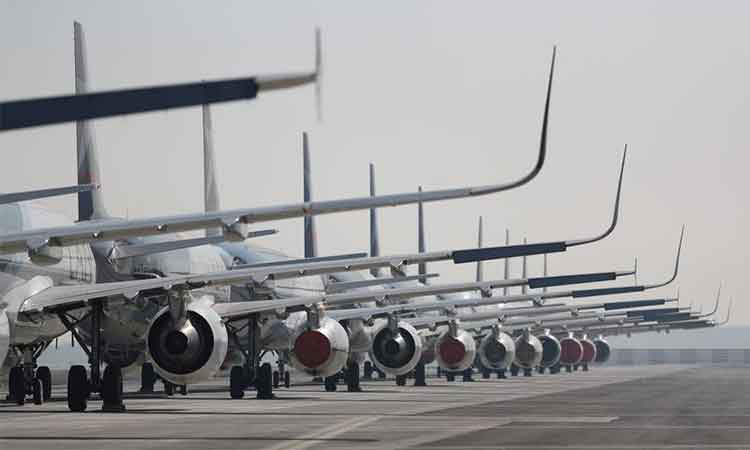
The head of global airline body IATA said he was cautiously optimistic about demand for travel in the second half of the year, adding that he expects transatlantic flying between Britain and the United States to re-open in the coming weeks.
Schedules are expanding as airlines sense consumer demand for travel rising and progress with COVID-19 vaccinations means shuttered routes could resume, International Air Transport Association Director General Willie Walsh told reporters.
“I think we have to be optimistic that we will see a relaxation in relation to transatlantic flying during the coming weeks,” Walsh said on Wednesday.
Major airlines including American Airlines, IAG unit British Airways, Delta Air Lines and United Airlines have for some months been pushing the US and UK governments to re-open travel between the two countries citing the pair’s advanced vaccination programmes.
Walsh said there had been no announcement on the matter at the G7 leaders meeting in June due to a lack of data about the vaccine’s efficacy against the Delta variant of the virus, but that had changed now.
A transatlantic re-opening would be a huge boost for the airlines.
Walsh’s optimism came after IATA published figures for May showing that passenger air travel demand remains subdued globally, 63% lower in May 2021 compared to the same month two years ago before the pandemic struck.
Walsh blamed ongoing restrictions and a lack of co-ordination between governments for creating consumer confusion and hindering the speed at which aviation can recover.
He said data showed that the risk of re-opening borders was very, very low where people were fully vaccinated or where sensible testing regimes were used to facilitate travel.
Governments would come under increasing pressure to allow travel, he forecast, as growing numbers of vaccinated consumers, who were reluctant to holiday at the height of the pandemic, demand their freedom again.
“What we’re seeing is a shift in the consumer attitudes over time and I think that’s going to accelerate now, as people become more frustrated at the pace at which governments are moving,” he said.
Global airline industry body IATA said that passenger air travel demand remained subdued compared to pre-pandemic levels, with figures showing it was 63% lower in May 2021 than in the same month two years ago.
International travel is much more affected by ongoing restrictions than travel within domestic markets like China and Russia, IATA said.
IATA director general Willie Walsh called on governments to better co-ordinate between themselves to aid the airline industry’s recovery.
“We’re seeing a wide variation in the requirements for things like testing…clearly this is causing great confusion in the minds of consumers,” Walsh told a briefing on Wednesday.
Saudi Arabia said on Wednesday that global airlines industry body IATA had agreed to open a regional headquarters in Riyadh.
The General Authority of Civil Aviation (GACA) late on Wednesday announced it had signed a “headquarters agreement” with the International Air Transport Association (IATA) to open its “regional office in the kingdom”.
IATA, which represents some 290 airlines around the world, currently has its regional office in Jordan’s capital Amman.
IATA said the body had agreed to set up an office in Saudi Arabia but not a regional headquarters.
“It will serve the growing needs of the industry in (Saudi Arabia). We have a regional headquarters … in Amman and we are not moving its functions to (Saudi Arabia),” an IATA spokesperson said by email.
GACA did not immediately respond to a request for further comment. The move is one of many recent economic and social reforms in an effort to diversify the economy away from its oil dependence.
Saudi Arabia last week announced a transportation and logistics drive aimed at making the kingdom the fifth-biggest air transit hub.
Meanwhile, Britain on Wednesday reported 32,548 cases of COVID-19, the first time the figure has surpassed 30,000 since January as the government looks set to ease almost all coronavirus measures this month.
Britain said it would provide genomic sequencing support to Brazil, Ethiopia, Kenya, Nigeria and Pakistan to help identify, assess and track new variants.
The highly contagious Delta variant now represents around 40% of new infections in France, a government spokesman said, and could jeopardise the summer if a fourth wave is allowed to build.












